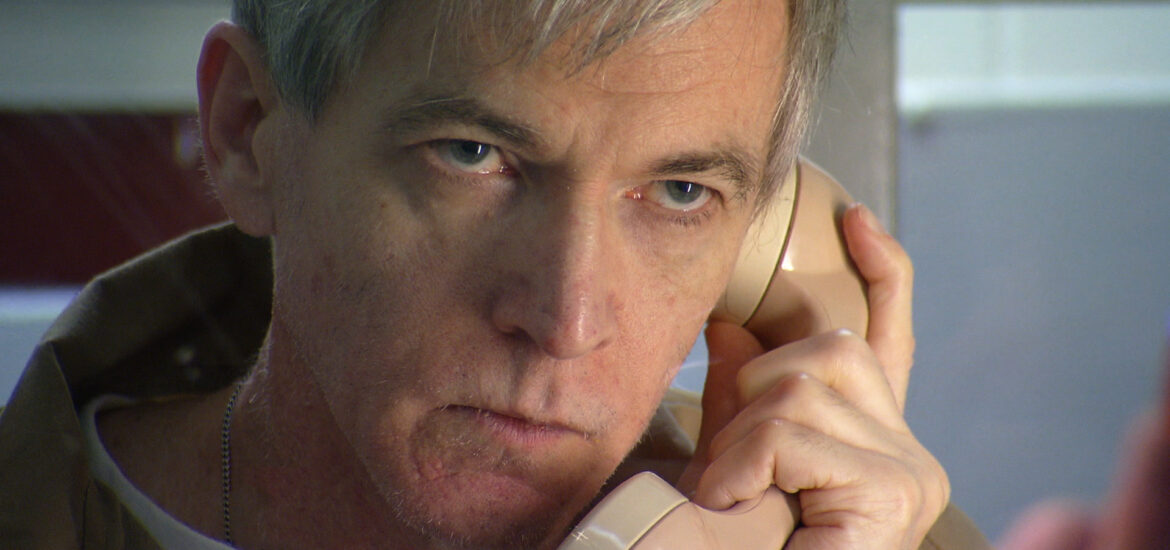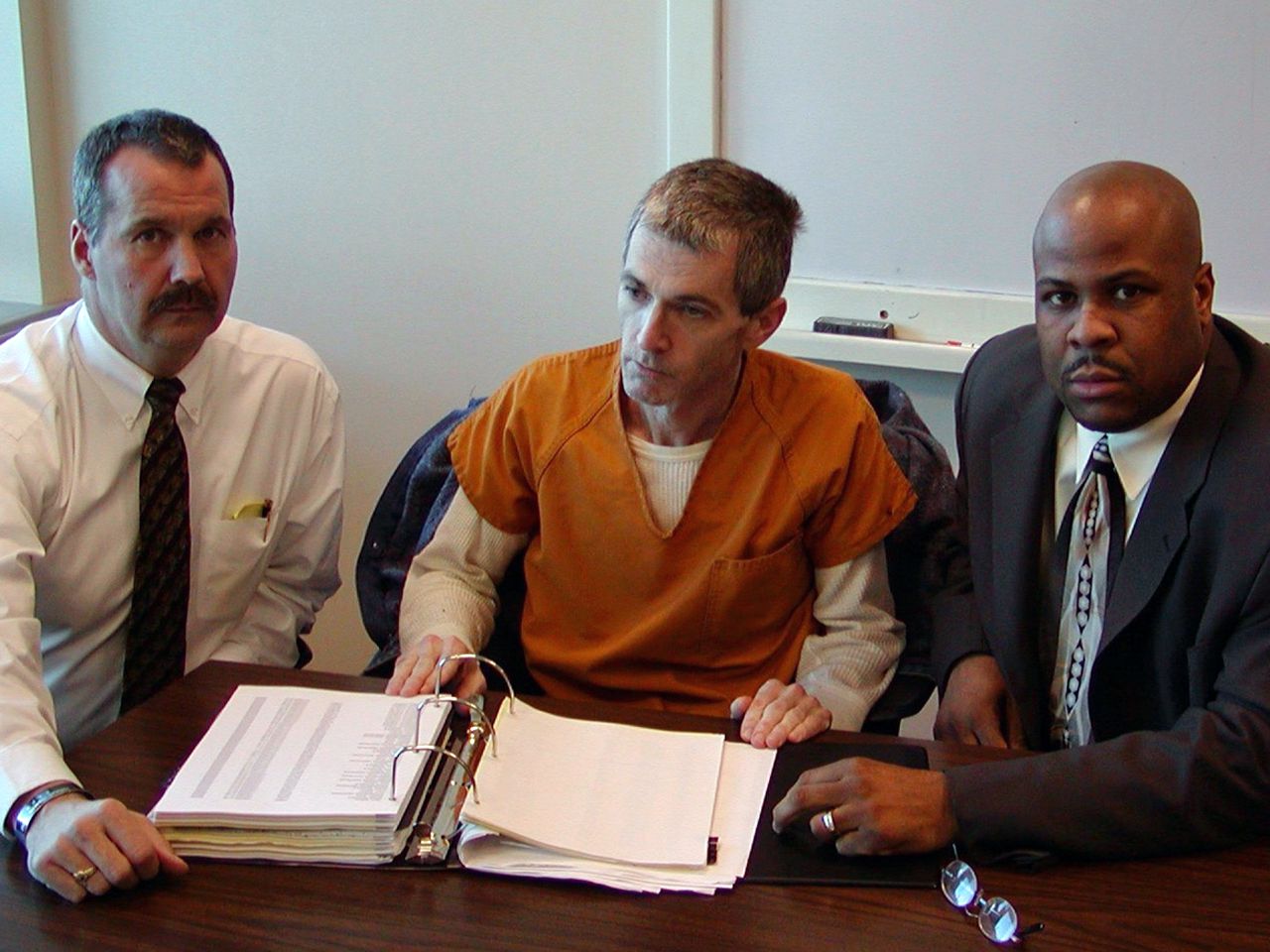Charles Cullen it is a serial killer little commented, but very controversial. A nurse who during 16 years of profession killed his victims silently and possibly killed more than any other. It is estimated that he killed more than 40 patients, but because he says he doesn't remember the majority, the current number after his statements could reach up to 400 people.
Learn all about Charles Cullen, the lethal night nurse
Who is Charles Cullen?
Born in West Orange, New Jersey, Charles Edmund Cullen is the youngest of eight children. His father, a bus driver, was 58 years old at the time of his birth and died when Cullen was seven months old. On December 6, 1977, Cullen's mother died in an automobile accident in a car her sister was driving.

Devastated by the death of his mother, Cullen dropped out of school and enlisted in the Navy. He didn't adapt to the routine there, quickly tiring of the services and the bullying he suffered. A pattern of strange behavior and suicide attempts began. He was discharged from the Navy on March 30, 1984. That year he was admitted to a psychiatric hospital, where he stayed for a brief period.
That same year Cullen enrolled in the Mountainside Hospital School of Nursing, where he was the only male student. Cullen was later elected president of his nursing class. He graduated in 1987 and started working at the St. Barnabas Medical Center in Livingston, New Jersey. In 1987, he got married.
Suicidal tendencies
Depressed and with abandonment issues, Charles had a strong attention-grabbing trait, so people would feel sorry for him, and he developed suicidal tendencies very early on. His first attempt was at age 9, drinking some chemical formula from a children's kit. The second was when he found out about his mother's death, an attempt that left him hospitalized and his first mandatory visit to a psychiatrist.
Not wanting to stay in the house without his mother, where his sister took strange men who used violence against him, he joined the Navy thinking it was the only solution. At that time there were more than seven attempts.
See also: Dossier | Who is Dr. Christopher Duntsch, the physician who inspired the Dr. Death series
In later interviews he confessed that he would never kill himself, given his Catholic upbringing that believed suicide was a sin. But he never stopped trying, he sought attention, that they felt sorry for him for being someone alone with immense pain, which only he could deal with.
During his marriage, he tried to show his wife that he was in agony. He was showing signs that he wanted to end her life, faking attempts at taking medicine or arranging for her to overhear a conversation with local funeral directors every time he entered the room. In his 16 years working in hospitals, particularly after his divorce, he tried a few more times, usually at home in a way that would make someone see and call an authority.
vices
During all accounts of his life, Cullen maintained a behavior driven by his addiction to alcohol and drugs. His heyday appears to have been during his first marriage, where later accounts of his ex-wife always had a complaint about his drinking.
It was because of his addictions that he began a routine of robbing medicine cabinets at the hospitals where he worked, quickly reaching the point where he used it on his patients.
When did Charles Cullen's problems with hospitals begin?
When his mother died in the accident, he, then 17, received a call informing him of the accident. They didn't say she was already dead. He tried to see the body, which was quickly removed from the accident, and he was not allowed to see it at the hospital, stating that it was no longer there. He is sure the body was still in the hospital and is deeply resentful that he didn't have the chance to see his mother again.
The Crimes of Charles Cullen
In his first job, the st. Barnabas, Cullen initiated his victims. From 1988 to 1992, he performed euthanasia and caused insulin overdoses in dozens of patients. At the same time, it contaminated intravenous bags and serums, causing more deaths. His first, later, confession was on June 11, 1988, when he administered a lethal overdose of IV medication to the judge. John W. Yengo, who had been admitted to the hospital suffering from a photoallergic reaction to a medication to improve blood circulation.
There was an initial investigation and some doctors even pointed out Cullen as responsible for the murders, but it was not possible to gather enough evidence for a sentence. He was then just fired, with no mention of any suspected murder.
A month later he got a job at the Warren Hospital, where he killed three elderly women by overdose of a cardiovascular drug. One of the ladies even denounced Cullen, but the family thought it was a delusion of the hospitalized woman.
See also: Dossier | Ed Gein, the Wisconsin assassin who inspired various fictions
In 1993, he divorced and lost custody of his daughters. He claimed to want to quit nursing, but child support costs wouldn't allow it. He developed an obsession with a co-worker and when his advances didn't work he broke into her house while she and her son were sleeping and did nothing, not even wake them up. Cullen continued to pursue the woman, who filed a police complaint against him. He pleaded guilty to trespassing and received a year's probation. Days after his arrest, Cullen attempted suicide again. He took two months off work due to depression that he tried to treat at two psychiatric institutions, but attempted suicide twice more in late 1993, at which time he left his job at Warren Hospital.
Cullen began a three-year stint in the Cardiac Intensive Care/Care Unit of Hunterdon Medical Center. He admits to murdering five patients between January and September 1996, overdosed on digoxin. His next job was at Morristown Memorial Hospital, where he was quickly fired for poor performance. He was unemployed for six months after that.
In February 1998 he was hired by Liberty Nursing and Rehabilitation Center, where he worked in the ward of patients dependent on respirators. He was accused of drugging patients, and was eventually fired after he was seen entering a patient's room with syringes in his hand, which resulted in a fight that broke the patient's wrist, but he was not given the injection. Cullen caused the death of a patient at Liberty, who was assigned to another nurse.
After leaving Liberty, Cullen was hired at Easton Hospital, where he stayed from November 1998 to March 1999.
The Angel of Death Case
The 16-year cycle with impunity began to be broken when a coroner examined the case of Ottomar Schramm, a 78-year-old man who died of an overdose of dioxin, a drug he didn't need, in December 1998 at Easton Hospital. The coroner claimed there was an "angel of death" at the hospital and co-workers testified about a nurse sneaking into the rooms of patients who later died.
In 2002, a nurse at the Hospital St. Luke found discarded drug packaging in an abnormal amount. Suspicion was planted. A more careful investigation led other nurses to observe Cullen and detect strange behavior, where he would enter patients' rooms with syringes without being asked. They informed the police, alleging together that they found open packages of the drug that killed her. Diane Mackrell and Esther Stoneback, in whose rooms they had seen Charles. The police finally began investigating Cullen.
But this still wasn't the same, even though it looked like conclusive evidence, Cullen was once again quick, quit his job and was hired in the intensive care unit of the hospital. Somerset Medical Center, in September of the same year. There, he murdered eight more patients, in a series with which he sought to cure himself of depression because of his last failed relationship.
Charles Cullen's Confession

The crimes ended only in December 2003, when the authorities were able to gather enough evidence against him and arrest him for the murder of the Rev. Florian Gall and also for the attempted murder of Tin Kyushu Han, both patients at Somerset Hospital. Cullen admitted to his crimes and was arrested in 2003. In the following years, either by his own confessions or by police investigation, 40 victims were found by them in the 10 hospitals where he worked. But estimates from experts and investigators on the case put the total number of murders at more than 400.
Where is Charles Cullen now?
Charles Cullen is being held in New Jersey State Prison serving 11 consecutive life sentences without the right to be eligible for parole until 2403.
Works about Charles Cullen
Charles Cullen is the protagonist of numerous podcasts. This year, a book narrating its events came out through the Intrinsic Publisher, written by Charles Graeber entitled The Night Nurse.
Based on that same book, on October 26, 2022, it launched by Netflix the long also titled The Night Nurse.















































